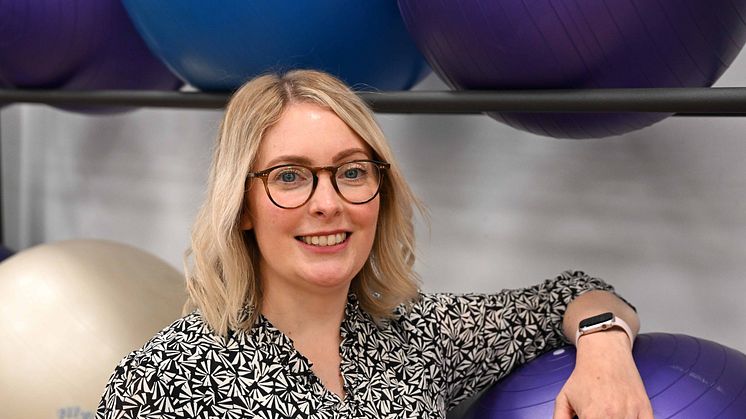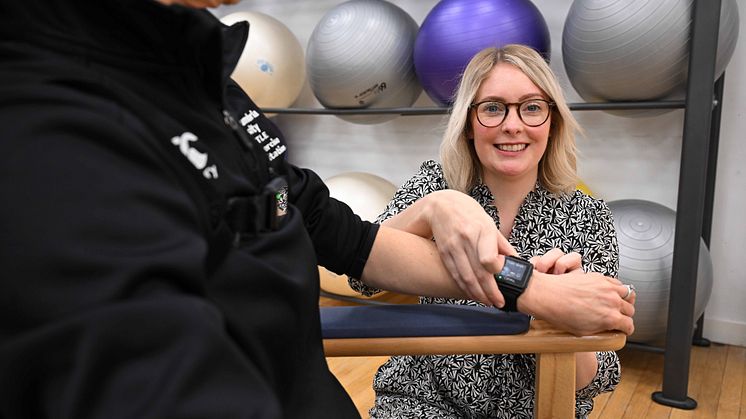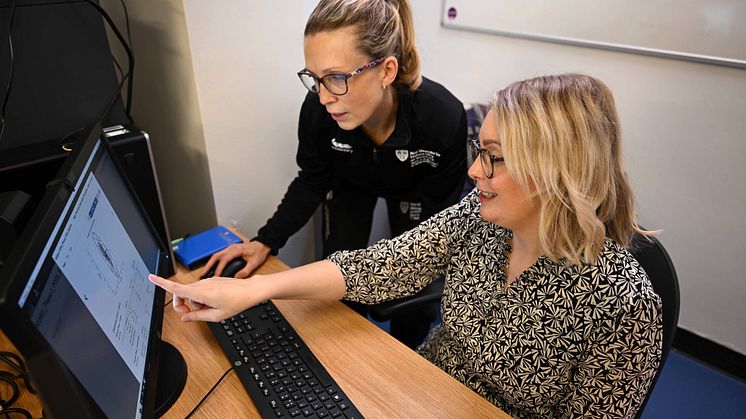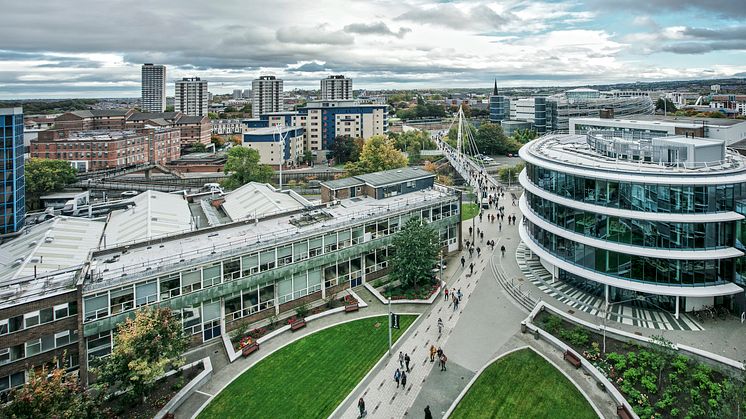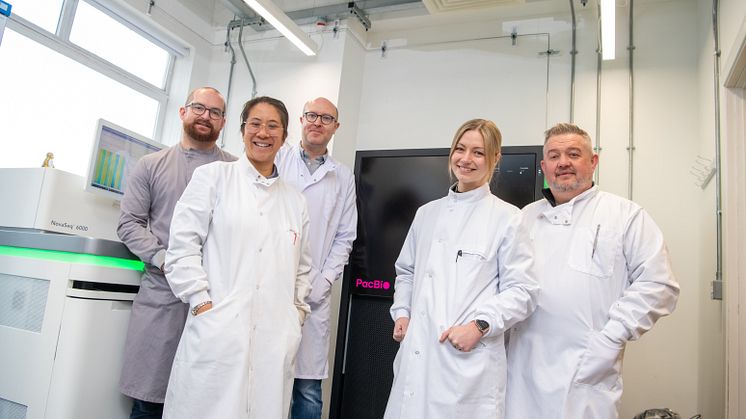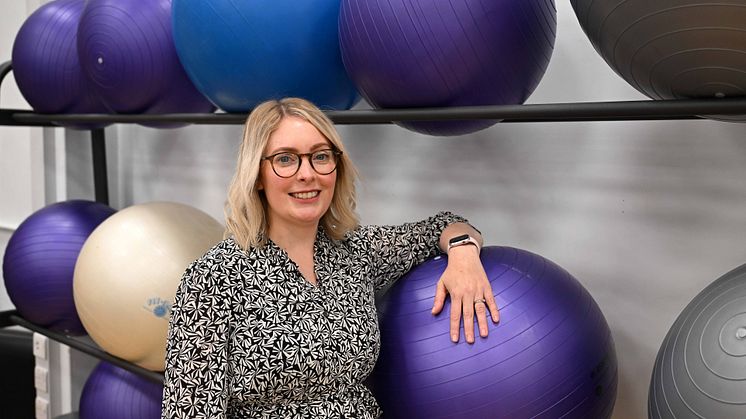
Press release -
Research fellowship will improve support for people living with Parkinson’s
The director of Northumbria University’s Physiotherapy Innovation Laboratory has been awarded a prestigious fellowship worth over £1 million to lead research which aims to improve the mobility of people living with Parkinson’s disease.
Dr Rosie Morris, an Associate Professor in neurological physiotherapy, works on research which explores the challenges faced by people with neurological conditions such as Parkinson's disease, including impairments in balance, turning and walking.
An Advanced Fellowship awarded by the National Institute for Health and Care Research will allow Dr Morris to expand this research further to include the co-design and assessment of a rehabilitation programme aimed at improving turning in people with Parkinson's disease.
Parkinson's disease is a condition that affects the brain and can cause uncontrollable shaking or tremor, slow movement and stiff muscles. Although there's currently no cure for Parkinson's disease, treatments such as physiotherapy can help reduce the main symptoms and maintain quality of life for patients.
Dr Morris said: “Through research we have good evidence to suggest that physiotherapy is effective at supporting patients with Parkinson’s who often have issues with their walking patterns, known as gait, and balance. What we don’t have much of an evidence-base for is the impact of physiotherapy on improving turning.
“This award supports my transition to an independent investigator in an area where there hasn’t previously been a lot of research. It will fund work on the co-design of a rehabilitation programme with clinicians, patients and families, to improve turning in people with Parkinson's disease. Ultimately, all my research aims to develop new understanding of neurological impairment and enhance clinical assessment and rehabilitation.”
The Fellowship will build on previous research projects to support the management of Parkinson’s disease at Northumbria which use digital technology to measure patterns in walking and brain activity changes, and deliver prompts for patients to swallow without the need for medical intervention. Other work has included the design of a smartphone app to report falls or near misses.
“The idea of a smartphone app is something we’ll be looking at by building on the prototype to explore potential uses as a self management tool, as well as recording and sharing information with healthcare professionals when incidents like falls have taken place,” explained Dr Morris.
She added that her Fellowship will also include a systematic review of current research evidence and a series of focus groups with patients and healthcare professionals to gather feedback on developing the rehabilitation programme so that it can be as effective as possible.
Dr Morris will work in partnership with Northumbria Healthcare NHS Foundation Trust to recruit patients, families and clinicians to take part in the research.
During her PhD at Newcastle University, Dr Morris focused on gait as an indicator for cognitive decline in people with Parkinson’s disease. She then moved to the USA to become a Postdoctoral Fellow at Oregon Health and Science University, where she joined Professor Fay Horak and the research team on a national study assessing the relationship between the genetics of people living with Parkinson’s disease and the influences on brain activity and mobility.
The Physiotherapy Innovation Laboratory, or PI-Lab, is based at Northumbria’s Coach Lane Campus in Newcastle and is home to a research group based within the Department of Sport, Exercise and Rehabilitation. Researchers make use of the latest equipment and wearable technology for analysis, and take a multidisciplinary approach to understanding human movement, while working to develop digital health and technology for clinical assessment and rehabilitation tools.
Notes to Editors
About Northumbria University
Northumbria is a research-intensive university that unlocks potential for all, changing lives regionally, nationally and internationally. Named Modern University of the Year 2025 by The Times and The Sunday Times, Northumbria is based in Newcastle upon Tyne, with an additional campus in London.
Two thirds of Northumbria's undergraduate students come from the North East region and go into employment in the region when they graduate, demonstrating Northumbria's significant contribution to social mobility and levelling up in the North East of England.
Find out more about us at www.northumbria.ac.uk
About NIHR
The mission of the National Institute for Health and Care Research (NIHR) is to improve the health and wealth of the nation through research.
We do this by:
- funding high quality, timely research that benefits the NHS, public health and social care
- investing in world-class expertise, facilities and a skilled delivery workforce to translate discoveries into improved treatments and services
- partnering with patients, service users, carers and communities, improving the relevance, quality and impact of our research
- attracting, training and supporting the best researchers to tackle complex health and social care challenges
- collaborating with other public funders, charities and industry to help shape a cohesive and globally competitive research system
- funding applied global health research and training to meet the needs of the poorest people in low and middle income countries
NIHR is funded by the Department of Health and Social Care.
Our work in low and middle income countries is principally funded through UK international development funding from the UK government.
Topics
Categories
UNIVERSITY OF THE YEAR 2022 (Times Higher Education Awards)
Northumbria is a research-intensive university that unlocks potential for all, changing lives regionally, nationally and internationally.
Two thirds of Northumbria's undergraduate students come from the North East region and go into employment in the region when they graduate, demonstrating Northumbria's significant contribution to social mobility and levelling up in the North East of England.
Find out more about us at www.northumbria.ac.uk
--- Please contact media.communications@northumbria.ac.uk with any media enquiries or interview requests ---







